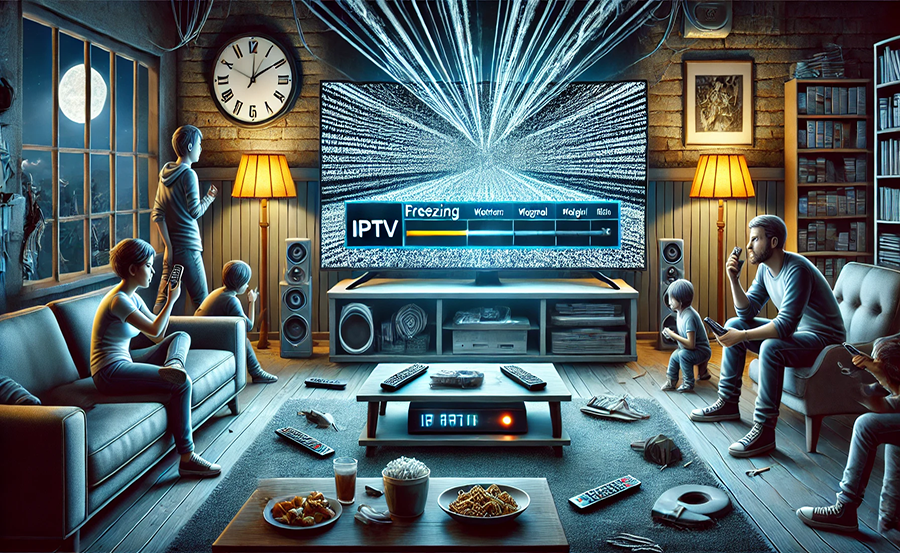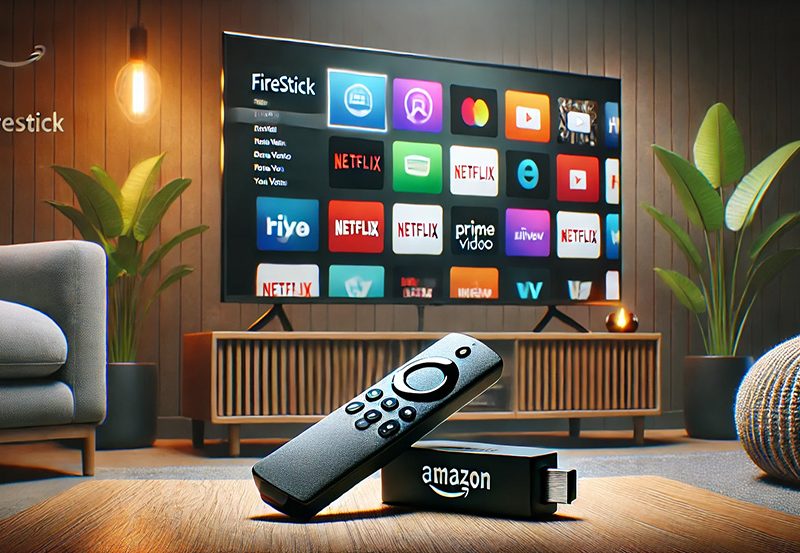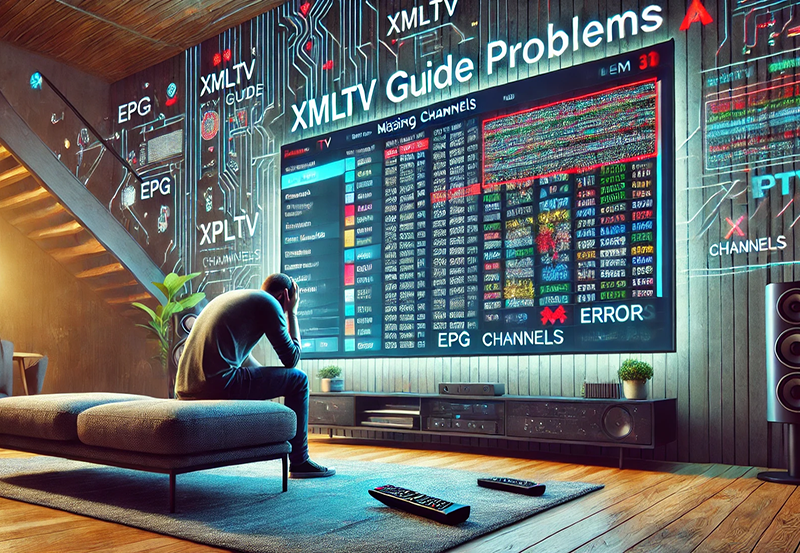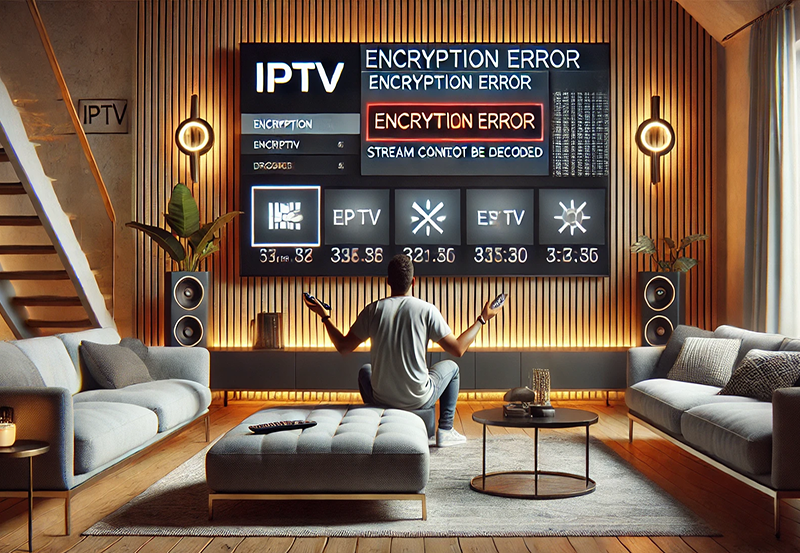Today, more and more people are turning to IPTV for their entertainment needs, appreciating its convenience and versatility. With a range of IPTV service options for devices like the firestick, selecting the right IPTV subscription plan is critical. However, optimizing your Home Network for IPTV streaming can often seem like a daunting task. This guide will walk you through setting up your router to ensure smooth, uninterrupted IPTV streaming, maximizing your streaming delight along the way.
Understanding IPTV and Its Infrastructure Needs
IPTV, or Internet Protocol Television, delivers television content over internet networks rather than through traditional satellite or cable formats. This digital approach requires a stable, high-speed internet connection alongside carefully configured equipment to deliver the best viewing experience.
Let’s explore:
- The basic requirements and setup for IPTV services.
- Optimizing your router settings for superior performance.
- The significance of IPTV subscription plans in smooth streaming.
Essential Components of IPTV Service
To successfully use IPTV, a few components are necessary. First, you need a reliable internet service that offers a high enough speed to stream content smoothly. Standard definition might work on lower speeds, but higher quality streams such as HD or 4K require robust connections.
Secondly, an IPTV service compatible device, such as a firestick, is crucial. This device acts as a bridge between your internet connection and your television, enabling the IPTV service to display content directly on your screen.
Buy 1 Year IPTV and Enjoy Unlimited Content
Optimizing Internet Connection
Ensuring a stable and fast internet connection is vital for IPTV performance. Most providers recommend a minimum speed of 10 Mbps for uninterrupted HD streaming. Lower speeds can cause buffering, freezing, and generally poor video quality.
Check with your ISP (Internet Service Provider) for the best package available that fits the IPTV demands. Also, consider using wired Ethernet connections over Wi-Fi, which typically offer more stability and higher speeds.
How to Configure Your Router for IPTV
Configuring your router correctly is key to achieving optimal IPTV streaming quality. A well-configured router ensures minimal interference and maximizes your bandwidth use efficiently.
Selecting the Right Router
Not all routers are created equal, and choosing a model that supports IPTV can vastly improve your experience. Look for routers with dual-band capabilities to avoid network congestion and prioritize traffic efficiently. Additionally, routers with Quality of Service (QoS) settings allow you to prioritize IPTV packets over other internet traffic, reducing interruptions during critical shows or sports events.
Firmware Updates and Security
Keeping your router firmware up-to-date can resolve bugs and improve overall performance. Regular updates can also patch security vulnerabilities, which is essential as IPTV streaming may require access to multiple international servers.
Ensure you have strong passwords and enable WPA3 when available for your Wi-Fi networks to safeguard against unauthorized access.
Enabling Multicast Streams
Multicast is a method used by IPTV services to efficiently send the same content to multiple subscribers. In your router settings, enabling multicast improves stream consistency and lessens the burden on singular bandwidth-intensive tasks.
Navigate to your router’s web interface, usually reachable through an address like 192.168.1.1 in your web browser, and enable multicast routing in the settings. Refer to your router manual or support website for specific instructions.
Maximizing Your Streaming Delight
After configuring internet settings and router adjustments, consider additional steps to up your streaming experience. Subscription plans and service choices can further influence the quality and variety of channels available.
Choosing the Right IPTV Subscription Plan
Diverse IPTV subscription plans are available, offering varying channel line-ups, features, and pricing. Opting for a well-reviewed plan ensures access to high-quality streams with minimal lag.
Evaluate plans that offer HD channels, diverse international options, and customizable packages. Trial periods are great testing grounds to explore performance before committing financially.
Device Compatibility and Troubleshooting
Ensure your chosen IPTV service for the firestick or any other device is compatible with your hardware. Compatibility issues can often be resolved via guidance from the service provider or online forums.
Regularly restart both your router and IPTV device to clear cache and improve performance. These simple steps can solve many common streaming issues.
Common Challenges and Solutions in IPTV Streaming
While setting up IPTV services, you might encounter several challenges that can affect your streaming experience. However, understanding these issues can help you better prepare and solve them promptly.
Buffering and Stream Quality Issues
Buffering and poor video quality are perhaps the most frequent issues in IPTV streaming. Address these by upgrading your internet speed if necessary, and ensuring your internet connection is stable.
Verify that your router settings, including QoS and prioritized IPTV traffic, are correctly configured. Additionally, assess if other networks are consuming too much bandwidth and adjust accordingly.
Dealing With Latency
Latency affects IPTV performance, especially for live events. Reducing latency involves placing your router in a central, open location to minimize signal interference and using modern routers with efficient processing capabilities.
Implementing the wired Ethernet connections over Wi-Fi as mentioned earlier helps significantly with this issue.
What Lies Ahead: Future Trends in IPTV
The realm of IPTV streaming is dynamic and ever-evolving, offering new trends and technological advancements as streaming services become more sophisticated. Staying informed can help you adapt your home set-up to handle new improvements while maximizing viewing pleasure.
The Rise of 5G in IPTV
5G technology promises incredibly fast and reliable internet connections, which will revolutionize IPTV streaming. This network upgrade will allow for smoother, higher-quality streaming experiences, eliminating many common issues faced with traditional ISP connections.
Keep an eye on developments from your Internet Service Providers regarding 5G home internet options that can enhance your IPTV service quality.
Integration with Smart Home Devices
As smart homes become more popular, integrating IPTV with other household devices is increasingly convenient. Imagine adjusting lighting or controlling temperatures through IPTV service commands for a superior viewing environment.
Expect to see more AI integration and smarter controls within IPTV devices, making entertainment more interactive and personalized.
Frequently Asked Questions

What Internet speed do I need for IPTV streaming?
A minimum of 10 Mbps is recommended for HD streams on IPTV, while 25 Mbps or more is ideal for 4K content to avoid buffering and maintain quality.
Can I use IPTV on multiple devices simultaneously?
Yes, many IPTV services allow simultaneous streaming on multiple devices, although this often depends on the chosen subscription plan.
How can I solve buffering issues on my IPTV service?
Buffering can often be reduced by upgrading your internet speed, configuring router settings for optimal performance, and ensuring your IPTV service plan supports your desired quality.
What are the advantages of an IPTV subscription over cable TV?
IPTV services typically offer greater customization, more viewing options, on-demand content, and often at a lower cost than traditional cable TV packages.
Are IPTV services legal?
Yes, many IPTV services operate legally, offering content that they have rights to stream. However, always verify the legality of the service provider before subscribing.
Will 5G make a difference for my IPTV service quality?
Absolutely, 5G technology is set to improve Internet speeds and reliability, making it ideal for IPTV services, enhancing streaming quality and reducing issues like buffering.
What compatibility issues should I anticipate with IPTV and firestick?
While many IPTV services work with the firestick, always ensure compatibility by consulting with service providers and checking for any app installation requirements specific to the device.





